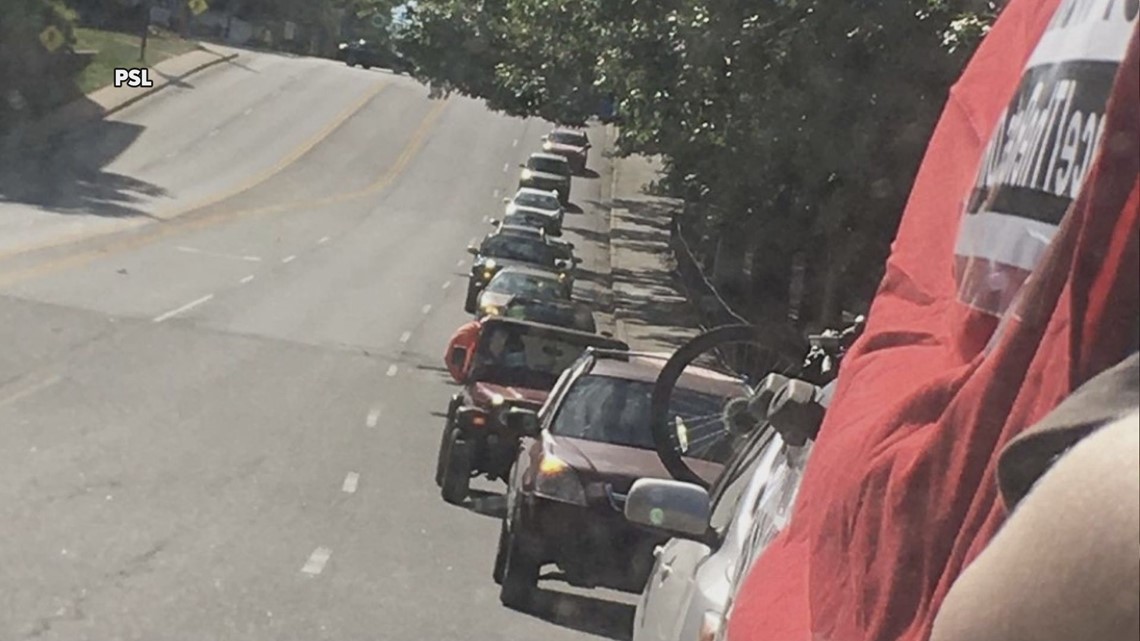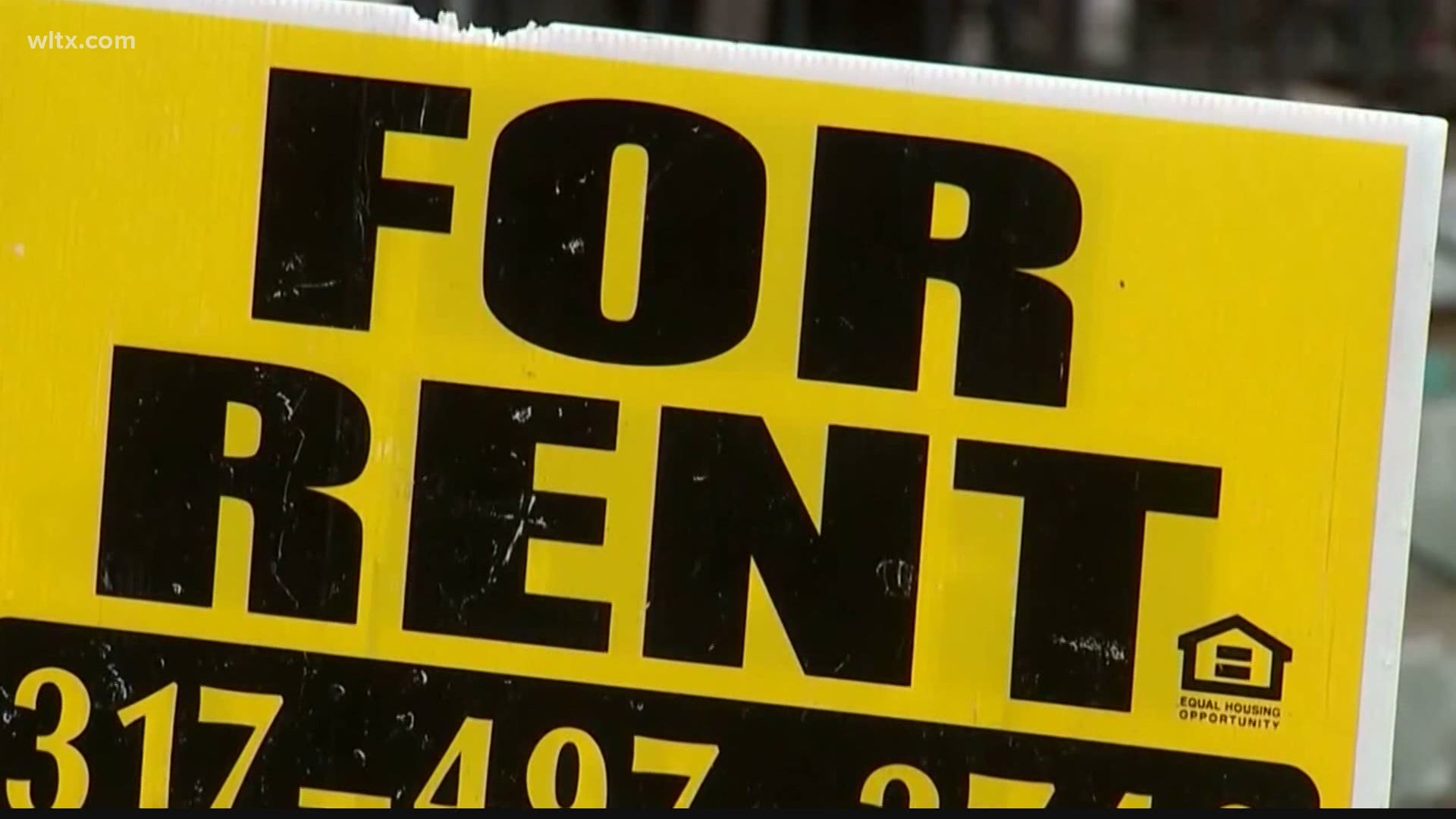Columbia, SC (WLTX) -- Congress has reached an agreement on a $900 billion COVID-19 relief bill.
The agreement, announced by congressional leaders, would establish a temporary $300 per week supplemental jobless benefit and a $600 direct stimulus payment to most Americans, along with a new round of subsidies for hard-hit businesses and money for schools, health care providers and renters facing eviction.
Even with a rent moratorium extension in place, thousands in the Midlands are going into the Christmas holiday flooded in rental or mortgage debt.
News 19's Deep Dive team is taking a closer look at the eviction situation in South Carolina and Richland County and what advocates say can be done about it.
"They've been laid off their jobs, they're out of work. If you can't work, you can't pay," said Anson Foster, member and organizer for the Party for Socialism and Liberation (PSL).
Right now, a rent moratorium delays payments for tenants who can't pay for COVID-19 related reasons.
Once the ban is lifted, those renters will have to pay their landlords for each unpaid month.
Volunteers with Mutual Aid Midlands say while an extension on a rent moratorium would serve families in the short-term, once the relief is taken away, homelessness in our communities will skyrocket.
Research conducted by PSL found that in the Columbia area, roughly 5,000 people sleep on the streets every night.
"We're talking thousands of thousands of dollars. How people are going to handle that is very concerning because we know they won't be able to. So then what happens?" said Mutual Aid Midlands volunteer, Deborah Billings. "If we don't have a plan in place and funding starting right now, we are going to have such a crisis on our hands."
Mutual Aid Midlands helped 14 residents facing a rental or eviction crisis this year. They also helped 20 households pay utility bills.
According to the National Low Income Housing Coalition (NLIHC), South Carolina has one of the highest numbers of unpaid mortgages and rent in the U.S.
"We have the highest rate of evictions in the United States and it's estimated that 52% of South Carolina residents can't even pay their rent as it is," said Mutual Aid Midlands volunteer, Dylan Gunnels. "This is a bigger, broader issue...This is something that has affected our state far before the pandemic and it will continue to plague our state past the pandemic."
The NLIHC noted that 15.8% of adults in South Carolina either missed last month’s housing payment or have little to no confidence that they can pay next month’s housing payment.
By January 2021, it is estimated that there will be 120,000 evictions filed in South Carolina, according to a recent report by the National Council of State Housing Agencies.
Online records show this month alone in Richland County there are at least 267 eviction cases in various stages in the court system. The reasons for eviction are not listed.
80 cases are pending and in 29 cases, tenants have been ordered to vacate their homes.
Nationwide organization Party for Socialism and Liberation believes lawmakers should take even further action than a moratorium.
Their caravans protested this year for rent and mortgage cancellations.


"For homeowners and even small landlords and small business owners," said Foster. "We've talked with people in the community here in Columbia, small business owners and small landlords. Their tenants can't pay and they have to pay up to the bank, so everyone is suffering."
Preventing future pandemic-related evictions requires a closer look at a deeper problem, advocates say.
As a possible start, they suggest government help for landlords and forgiving rent payments.
"To say that we shouldn't be evicting people in the middle of a pandemic in the middle of winter because they can't pay their rent is absolutely a bare minimum," said Foster. "So we would continue to fight and continue to organize for housing as a human right."
Part of PSL's outreach right now is in the Millwood community, focusing on neighborhoods along Millwood Avenue towards Martin Luther King Park. They're also doing outreach in West Columbia to the Latinx community, Foster said.
Columbia Mayor Steve Benjamin tells News 19 he is working with other policymakers to resolve this issue to meet the needs of both sides.
He said in a statement:
“The severe economic impact from COVID-19 has affected both landlords, who need the steady revenue of continued rent payments to maintain the overhead, expenses and upkeep on their properties, but also renters, a great many of whom have lost their jobs or seen significant loss of income,” said Mayor Steve Benjamin. “While we need to address the needs of both property owners and renters, the consequences of COVID-affected renters losing their homes will be devastating as we head into this anticipated dark and unhealthy winter. Apart from the human perspective of families and children losing the safety of their homes, increased numbers of displaced citizens raises the potential for higher rates of virus transmission and our ability to contain the pandemic. Simply put, forcing renters from their homes at this time increases the health and economic risks for everyone. We must work harder to find a solution.”
If you're in need of rental or utility assistance, call United Way or Legal Aid.
Mutual Aid Midlands is also offering assistance with PPE, food, rent and utility assistance. You can reach them at any time via their hotline at 888-927-6679.

